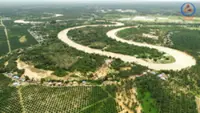KOTA KINABALU: The Sabah government is extending diesel power plant operations and renting additional diesel generator sets (gensets) to keep up with rising electricity demand as the state struggles with supply shortages.
The Sabah Energy Commission (ECoS) is resorting to what it calls interim solutions while waiting for longer-term projects, such as gas-fired power plants and renewable energy developments, to be completed.





